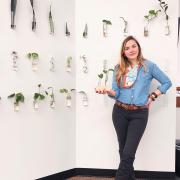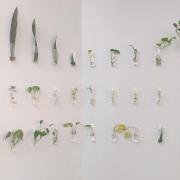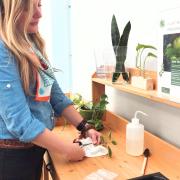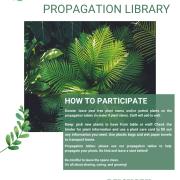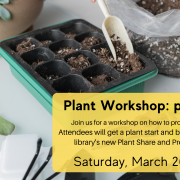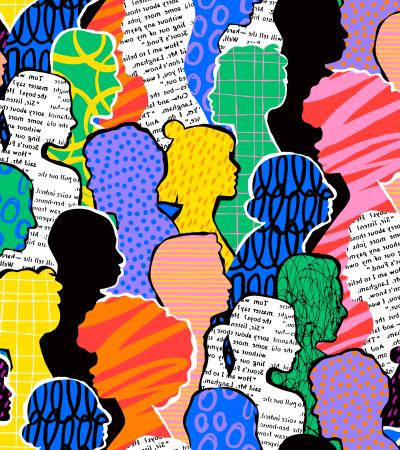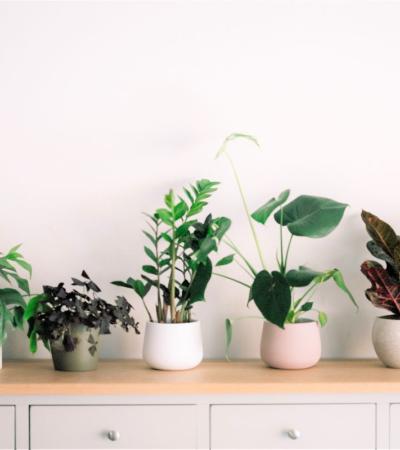The Plant Share and Propagation Library is an area where patrons can donate loose cuttings and/or small potted plants to share. This area is the first part of our makerspace that has a STEAM identity and embraces the heritage of Catawba County, one of artisans, craftsman, textiles, furniture and entrepreneurship.
Advanced Planning
The Plant Share and Propagation Library is the first component of the library’s developing makerspace. As the makerspace is themed for STEAM activities, it’s essential to include a living lab component, and it reinforces our commitment to healthy living. This component allows us to teach science, ecology, plant propagation and more. It is also a great way to serve patrons who want a more indirect library experience during the pandemic.
The project embodies the importance of what we can share as a community while embracing where we are located, at the heart of the Salt Block campus, which houses not only our public library but a children’s science museum and an art museum.
The physical area is set up with a plant wall display, propagation tables, information on propagation, plant care, and more. It took very little time to build the furniture and construct the wall with help from our maintenance coordinator.
I’ve been providing programs to support the plant service (e.g. houseplant care, plant propagation, how to propagate plants). I also plan to teach how to make botanical scanned art, botanical wood transfers, and classes on pollinators and beekeeping.
Marketing
We’ve just started the program/service. I promoted the plant wall coming in all my STEAM programs. I’ve reached out to NC Cooperative Extension to help promote, and we’ve used Facebook as well. I hosted a Plant Swap in January to highlight the plant wall coming and showed off the wall to attendees. We also had a wonderful local entrepreneur, Plants Don’t Succ, teach a class on winter care for your plants in the fall.
Budgeting
There was cost to buy the furniture and supplies for the wall, including plant beakers, paper towels, etc. It is a low-budget project after you purchase the furniture. Once started, the project will cost very little to maintain.
Day-of-event Activity
Plant Swap activity: Set-up for the plant swap is very minimal with some organization of plants and creating plant propagation flyers. For the event, patrons bring in healthy plants, rooted in dirt or loose cuttings ready to be traded with others participants. We then have a short conversation on proper plant care and propagation.
Building the wall took three hours maximum. We also painted the wall to protect it from any humidity and/or water damage. There will be ongoing workshops for plants, such as an upcoming program where I will teach plant propagation.
Program Execution
The interest in the wall and STEAM programs is very high. I held our first plant swap in January with 25 in attendance. I am coordinating with NC Cooperative Extension to have Master Gardeners help adopt the program as well as having plant volunteers, whom I call Plant Ambassadors, to help maintain the wall.
I am also working toward doing a Plant Doctor program, which will be a one-on-one plant appointment to address any plant needs you may have (e.g., leaves are droopy, how do you propagate a plant, how do you repot a plant). I am hoping that an enticing and attractive natural area will help make the makerspace accessible and inviting. I love where science, art, technology and craft meet with our natural everyday world environments. As this is a service point with programs coordinated around the service, I think we will help our community continue to learn and grow, together and independently.
A recent survey of patron interest in programming listed gardening as very high. The interest in the wall, the makerspace, and all of our STEAM-based programs are high and program attendance is always full. People are often requesting more programs. This service offers a way for patrons to volunteer and take ownership and learn from one another.
Advice
The most important thing I did was research what was already available in the community, decide what the community would be passionate about, and promote and plan and talk with the community to make it unique.

